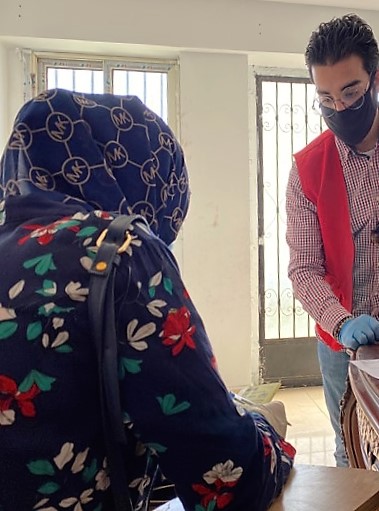Humanitarian Situation in Egypt
Egypt is currently home to 258,836 registered refugees and asylum-seekers from Syria, Sudan, South Sudan, Eritrea, Ethiopia, Yemen and Somalia. There are 130,000 refugees and asylum seekers from Syria; and 50,000 from Sudan. Children represent nearly 40 percent of all refugees and asylum seekers in Egypt. Over 4,600 unaccompanied and separated asylum seekers and migrants children are currently in Egypt and require humanitarian assistance. Pre-COVID assessments identified that 80 percent of refugees in Egypt are unable to meet their basic needs, and now COVID has worsened their situation further. Refugee children inare at heightened risk of violence, exploitation and abuse.The Government in Egypt estimates that there are up to five million migrants in country, of which 20 percent are children and youth.
COVID impact in Egypt
There are 99,000 confirmed cases of COVID-19 (expected to be much higher but reporting figures are low). Economic stress has meant any restrictions and mitigations have been lifted. Including children returning to school. Stress on health care systems and poor access to health care systems. Significant loss of livelihoods and increase in poverty rates throughout Egypt, disproportionately affects refugees and migrants who rely on casual labor.
We know that women and girls in Egypt are already facing discrimination, and now face additional barriers to education, mobility, access to financing and assets, and participation in the labor force and official decision-making as a result of the COVID crisis. Women and girls are experiencing regression in the informal labor market, elevated levels of violence and harassment, and increased care-taking burdens for siblings and sick and elderly family members. Deeply-entrenched gender roles in Egypt have led to an even heavier burden of work on women who typically serve as caregivers for household members, included children doing remote schooling and infected family members. The levels of psycho-social stress are already high in Egypt and increasing. A common trend in many countries, and also seen in Egypt is the increase in domestic violence, child marriage, and exploitation. More adolescent boys and young men are reporting abuse in the last six months than previously. Economic deprivation, psycho-social stress, and stay-at-home measures are leading to substantial increases in intimate partner and domestic violence in many communities in Egypt. The need for increased GBV support services is critical.
Humanitarian Advisors recommends the continuation and expansion of gender-based violence services as a matter of urgency throughout Egypt, to citizens and refugees alike. Women must be involved in leadership and decision making around COVID responses at the national and community levels. Men and boys must be included in dialogue around social norms and strengthening engagement in care-giving tasks.
